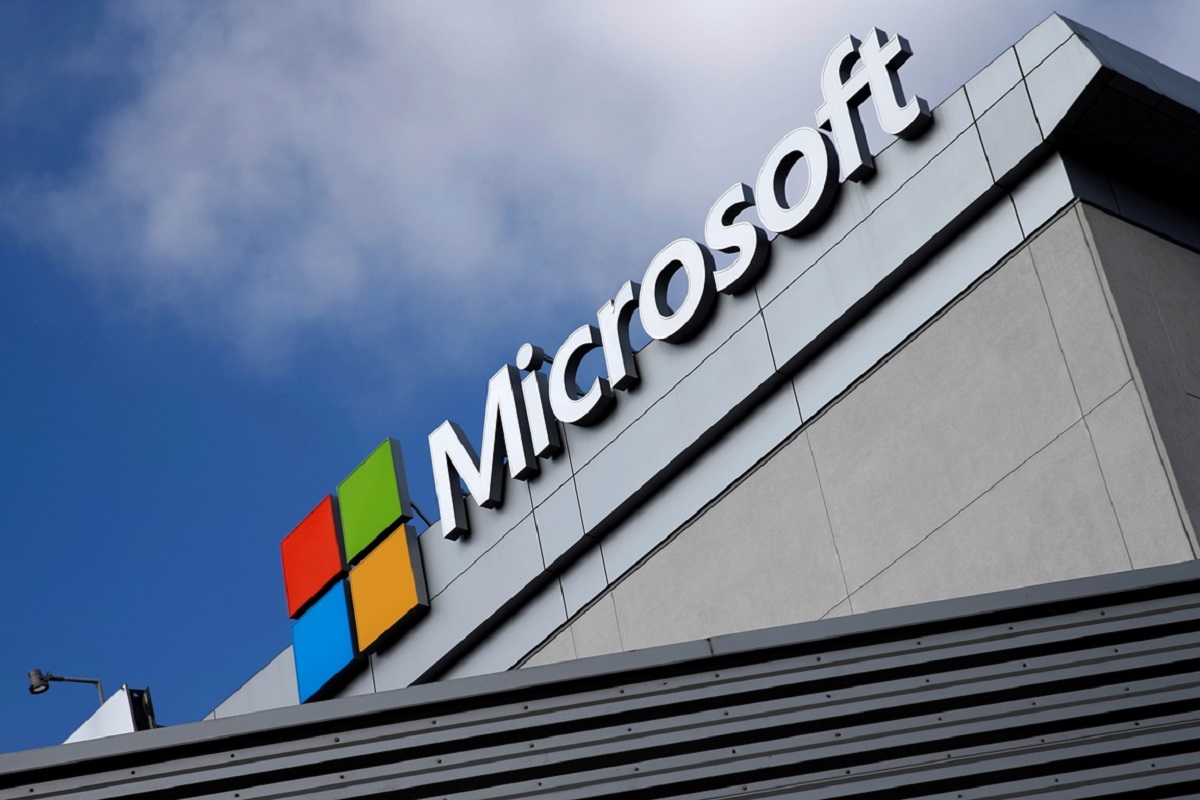E-Business
Jeff Bezos Trillionaire Tale and Nigeria eCommerce

By Aliyu Yakubu
America’s Jeff Bezos, founder of e-commerce giant, Amazon, is becoming a trillionaire in the midst of COVID-19 global pandemic. This is both good and bad news. Good news because it is the reward of foresight and tenacity.

Bad news because in the midst of the same pandemic, his e-commerce counterparts in Nigeria are counting losses. The difference is not in the business dexterity of Bezos nor in the poor marketing skills of the Nigerian counterparts. The difference, unfortunately, is how the two governments reacted to the pandemic and its attendant lockdown.
While the US government gave a clear signal to e-commerce companies in America to move freely during lockdown to make delivery in anticipation of a surge in online shopping, the Nigerian government did the opposite. It locked down e-commerce activities by not clearly classifying e-commerce companies and their workers under ‘essential services’.
This is the difference between a 21st century policy-smart government and a policy-dumb government. The US government anticipated a spike in online sales during the lockdown and gave free access to Amazon and other e-commerce workers. The Nigerian government was too happy to lock down e-commerce firms alongside other businesses.
Now, for the smartness of the US government, Bezos is walking his way to trillions. Imagine the tax that would add to US government purse. Imagine the number of jobs it will save when other companies around the world have either furloughed their staff or have sacked them outright.
This is a case of the absence of critical and strategic thinking in the Nigeria public ecosystem. Our leaders are not intentionally progressive. You cannot lock down a critical driver of the economy at a time you have decreed no-movement for the populace. It is also a function of low appreciation and lack of understanding of what e-commerce really means and how it works.
In the wake of the lockdown, somebody ought to have anticipated that Nigerians would resort to making online purchases, hence the overriding need to categorise e-commerce workers as persons on essential duty. The nature of e-commerce is that it’s unobtrusive, does not draw physical crowd yet it effectively services clients from its backend through the delivery channels. In this way, issues of non-compliance with social distancing and other precautionary protocols do not arise.
The paradox of the Nigerian e-commerce story during the pandemic is that they were lumped with other regular businesses and clamped with the same lockdown measure. They are not. Their staff were treated as non-essential duty persons. It took some explanation for them to be allowed to do their businesses during the lockdown. In some states, it was practically impossible as e-commerce delivery workers were either harassed or turned back from performing their duties.
For instance, some delivery staff of Konga, Africa’s fastest growing and most innovative e-commerce company, were either harassed or turned back from making deliveries. Delivery men were harassed while moving items inter-state. There were also reported cases of harassment within some metropolis. Lagos was no exception.
In Rivers State, not a single Experience Store was opened during the lockdown. Strict enforcement by the state government meant no e-commerce delivery man was allowed movement even within the metropolis.
You cannot build economies when you shut down all channels of trade. In the western world and Asia, persons on lockdown turned to online purchases to restock. Their governments clearly exempted e-commerce outfits from the list of companies that must remain shut for as long as the lockdown lasted. The net result is beginning to show in the balance sheet of Jeff Bezos’ Amazon.
Comparisun, a company which allows small- to medium-sized firms to compare different business products, projects that Bezos will by 2026 emerge as the world’s first ever trillionaire, an honour he won’t be sharing with nobody, not even with Bill Gates of Microsoft whose fortunes keep growing with the birth of more technologies.
Their projection shows Bezos reaching trillionaire status by 2026. The company said their projection is based on taking the average percentage of yearly growth over the past five years and applying it to future years. Comparisun shows Bezos’ net worth grew an average of 34% over the last five years.
As of Thursday May 14, Bezos’ net worth was estimated at $143 billion, according to Bloomberg’s Billionaires Index, which tracks the worth of the world’s richest people daily. Compared to last year, Bezos’ worth has surged by more than $28 billion. He profited heavily from the coronavirus pandemic. Shoppers denied access to physical stores turned to online stores to make purchases from groceries to gaming machines, toys for the kids and big toys for the parents. The lockdown was the appropriate time to change household electronics for most parents, just anything to fight the boredom.
In Nigeria, there were cases of security men delaying delivery for days by ‘impounding’ vehicles and keeping them for as long as they wished. Delayed delivery makes nonsense of e-commerce. One of the unique selling points of online shopping is prompt delivery of goods. Once purchased goods are delayed, the suspense dies and so does the utility of the goods. Unfortunately, this was what Nigeria’s e-commerce companies suffered during the lockdown. At a time they were supposed to win more patronage and disciples into the e-commerce family, they got stuck in resolving issues of violation of lockdown rules while their counterparts in Europe and America simply worried about their balance sheet.
Now, the difference is clear. Bezos and others are smiling to the bank; their Nigerian counterparts are counting losses. Lesson: When next you lock down a state or city, make sure that e-commerce workers are exempted.
However, beyond Nigeria e-commerce fraternity, Jeff Bezos himself must learn the lessons of his capitalist expansionism. When the news of his impending trillionaire status broke, Twitter went agog. Elizabeth Warren, business woman and Democratic presidential candidate tweeted: “While Bezos is on the track to become a trillionaire in the middle of a pandemic, Amazon is ending overtime pay for warehouse and delivery workers on the frontline. This is immoral.”
While I congratulate Bezos for his feat, I should also remind the Nigerian government that e-commerce deserves a better deal next time.
E-Business
Microsoft Plans $1m Investment to Train One Million Nigerians in AI Innovation

Microsoft has announced a $1 million initiative to train one million Nigerians in artificial intelligence (AI) over the next two years.

Ola Williams, country manager for Microsoft Nigeria and Ghana, announced on Wednesday during the Microsoft AI Tour in Lagos.
“I am so delighted to announce that as Microsoft in Nigeria, we will be investing one million dollars in the next two years to empower one million Nigerians with AI tools,” Williams said.
She said the initiative aims to equip Nigerians with AI skills to help them build solutions, establish businesses, and compete globally.
“This is a significant investment in our drive to ensure that everyone has access to the right skills required not just to use AI but to build solutions on AI, build businesses on AI that will be a sustainable means of livelihood for Nigerians and give Nigerian youths the opportunity to compete globally with their counterparts,” she added.
The announcement comes on the heels of a partnership between the federal government and Google to advance AI and digital innovation in the country.
The presidency described the partnership as a major step toward strengthening Nigeria’s digital economy and expressed commitment to ensuring technological transformation translates into real benefits for businesses and citizens.
E-Business
CSCS to Unveil RegConnect Version 2 to Improve Capital Market Delivery

Central Securities Clearing System (CSCS) Plc has announced the launch of RegConnect Version 2, set to go live on February 28, 2025.

This, according to a statement from the firm, is a cutting-edge upgrade to its flagship web-based application designed to enhance operational efficiency and user experience for Registrars in the Nigerian capital market.
RegConnect Version 1 was launched in 2019, and it provided an easy-to-use platform that improved the user experience of Registrars when exchanging information.
By enabling immediate validation of submitted data, it ensured accuracy and reduced processing times.
Now, RegConnect Version 2 takes this innovation further, setting a new benchmark for efficiency and functionality.
RegConnect Version 2 introduces several advanced features that redefine user experience and operational efficiency.
The platform now includes omni-channel capability, allowing users to submit transactions through multiple channels such as file uploads, on-screen interfaces, and APIs.
The upgraded version also offers seamless API integration, enabling the retrieval of investor portfolio balances, processing of transactions, and spooling of daily advice files.
A monitoring dashboard has been added to provide an end-to-end view of data exchange processes, ensuring real-time tracking and improved operational efficiency.
Haruna Jalo-Waziri, MD/CEO of CSCS Plc, emphasized the company’s commitment to driving innovation in the capital market.
“The launch of RegConnect Version 2 represents our unwavering dedication to transforming the Nigerian capital market through technology-driven solutions. This new iteration of RegConnect aligns with global best practices and is a testament to our continuous investment in efficiency and stakeholder satisfaction.”
Designed after an extensive review of CSCS’s operations and interactions with Registrars, RegConnect Version 2 addresses critical industry challenges.
Prior to RegConnect, Registrars relied on a Data Exchange application with limited processing capabilities.
The new platform not only bridges that gap but also introduces state-of-the-art features to ensure seamless and efficient data exchange.
Jalo-Waziri added “At CSCS, we understand the importance of operational excellence and innovation in fostering a vibrant capital market. RegConnect Version 2 is not just a product upgrade; it is a tool to enhance accuracy, reduce operational bottlenecks, and empower our stakeholders with better control and visibility over their processes.”
E-Business
Kaspersky Endorses UN’s Global Digital Compact

To enhance global efforts aimed at making the digital world safe and secure, Kaspersky has joined the ranks of organisations endorsing the vision of the United Nations’ Global Digital Compact.

This framework sets out objectives and principles that participating parties will use to foster a more inclusive, open and sustainable digital future. As a Compact supporter, Kaspersky will continue to deliver on its mission of building a safer digital world where people are free to use the power of digital technologies to improve their lives.
The Global Digital Compact is a comprehensive framework for global governance of digital technology and artificial intelligence.
Laying out a roadmap for cooperation to activate the potential of digital technology, the document promotes a global and inclusive effort and encourages organisations and associations to endorse its vision and principles.
The Compact is structured around five major objectives, namely:
- Ensuring that digitalisation is accelerating progress in achieving Sustainable Development Goals;
- Expanding inclusion in and benefits from the digital economy;
- Fostering a digital space that respects and protects human rights;
- Advancing responsible data governance approaches;
- Enhancing international governance of artificial intelligence for the benefit of all.
By joining the Compact, Kaspersky reaffirms its commitment to make our world more sustainable by minimising cyber risks and leading society toward immunity against digital threats.
With digital literacy improvement being one of the key action areas to this end, Kaspersky will continue raising cybersecurity awareness among the general public by releasing cybersecurity research and developing its educational initiatives, including those run by Kaspersky Academy.
To provide a more profound knowledge on security evaluation, Kaspersky will continue advancing its Expert Training programs so that they correspond to the needs of businesses, government and academic institutions.
Fostering an inclusive, open, safe and secure digital space requires a multi-faceted approach, taking into account numerous aspects ranging from Internet governance to digital trust and security.
As an early digital trust pioneer, Kaspersky continues to lead in this area by expanding its Global Transparency Initiative (GTI) to demonstrate the trustworthiness of the company’s products, internal processes and business operations.
Allowing trusted partners and customers as well as regulators to check the source code of its products, software updates and threat detection rules, Kaspersky contributes to the formation of a reliable and secure digital space.
Kaspersky has also been a frequent contributor to the process of drafting legislation, policies and other documents that aim to bring cybersecurity considerations to the development of emerging technologies, including artificial intelligence.
Just recently, as part of the 2024 UN Internet Governance Forum, Kaspersky presented “Guidelines for Secure Development and Deployment of AI Systems,” prior to which it set out “Principles of ethical use of AI systems in cybersecurity” to ensure that innovation is led to the benefit of all.
“Kaspersky has been a great supporter of global initiatives encouraging cooperation of diverse stakeholders, including governments, the private sector and civil society,” comments Yuliya Shlychkova, Vice President of Public Affairs at Kaspersky.
“The Global Digital Compact outlines a vision where the digital technologies act as enablers of a more sustainable world, which is inherent in our company’s mission to foster a safer online space by creating secure-by-design technologies. Kaspersky was proud to partake in the Compact elaboration and is pleased to endorse it to make the digital future a future for all.”
Kaspersky was an active participant to the informal consultations and stakeholder sessions preceding the Compact adoption at the Summit of the Future in New York in September 2024.
The company has, in particular, stressed the importance of a paradigm shift in cybersecurity and its further development toward secure by design or Cyber Immune technologies, including in the context of AI system development and deployment.
Another focus Kaspersky called to consider is the need to label AI-produced content and enhance cooperation among various stakeholders to ensure the AI-driven innovation brings a change for the better.
Creating a safer digital world has been Kaspersky’s mission and one of its key sustainable development strategies.
More information about how Kaspersky is making the digital world more resilient and ensures that people can use technology to improve life on the planet can be found in the company’s Sustainability report.

 Telecom2 days ago
Telecom2 days agoToriola, MTN Nigeria CEO again Defends Tariff Hikes amidst Backlash

 E-Business2 days ago
E-Business2 days agoSouth Korea Joins List of Countries Banning DeepSeek over Security Concerns

 E-Business2 days ago
E-Business2 days agoAU Endorses Nigeria as AfCFTA Digital Trade Champion

 E-Financial2 days ago
E-Financial2 days agoUBA Announces Successful Completion of System Upgrade

 Telecom2 days ago
Telecom2 days agoIoT West Africa & Data Centre Cloud Expo 2025 Set to Boost Africa’s $180Bn Digital Economy

 News2 days ago
News2 days agoWiSolar Offers Base Pay for Nigerian Partners

 Broadcasting2 days ago
Broadcasting2 days agoKongaFM -103.7 Launches “Shop On Radio”, First in Africa

 News2 days ago
News2 days agoRaji Takes over as NBTI Boss, Pledges to Drive Technological Growth



























